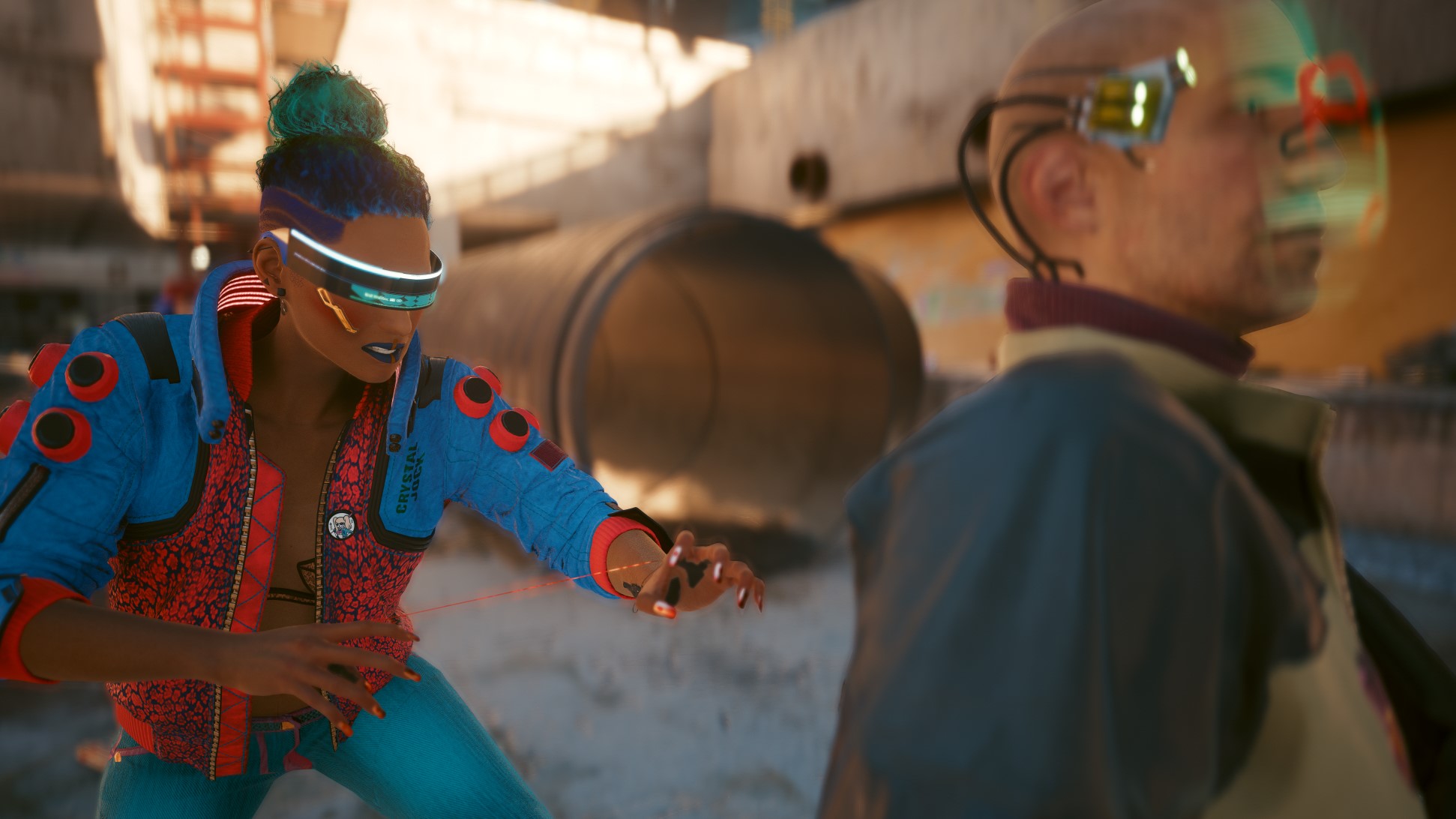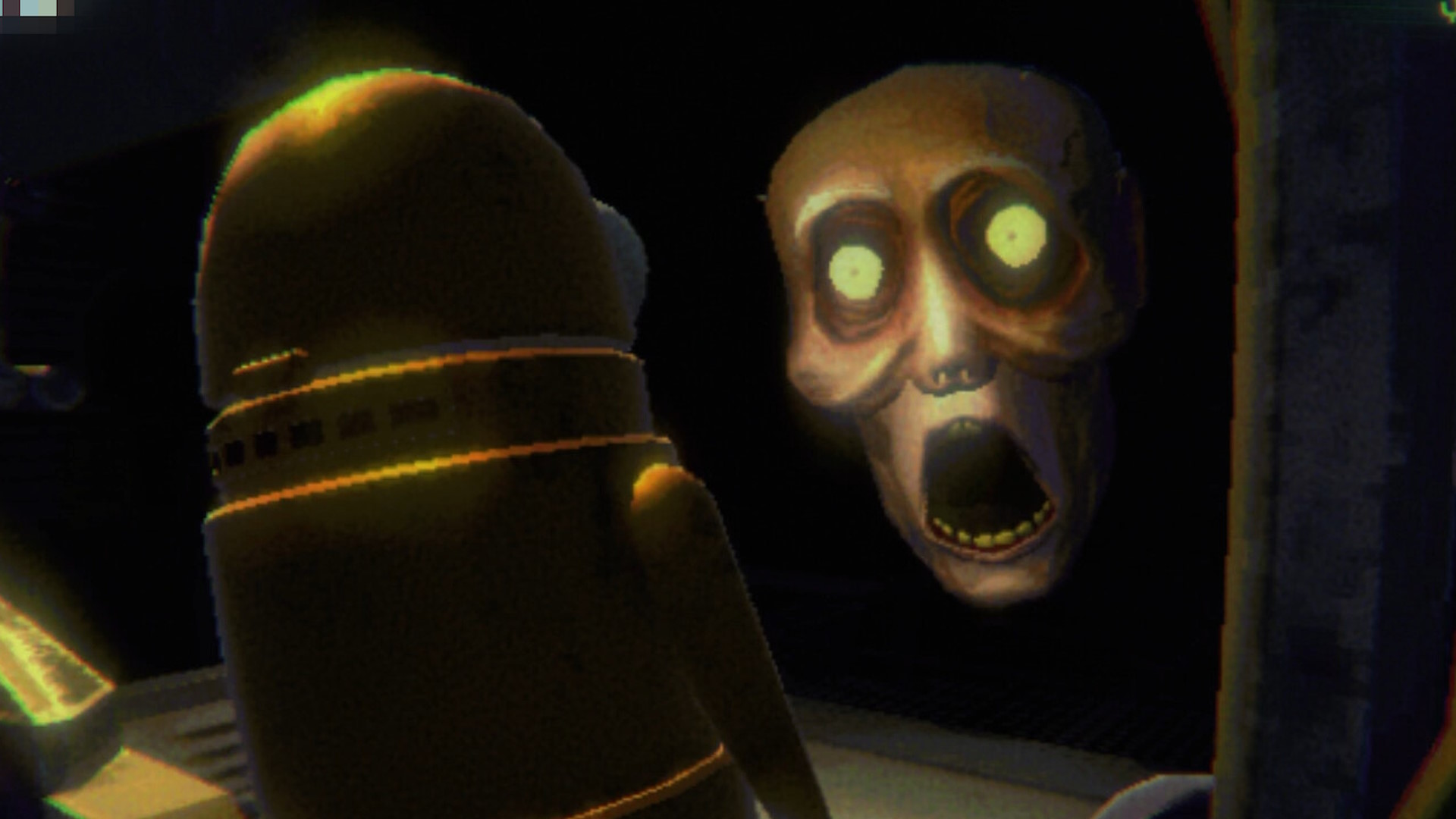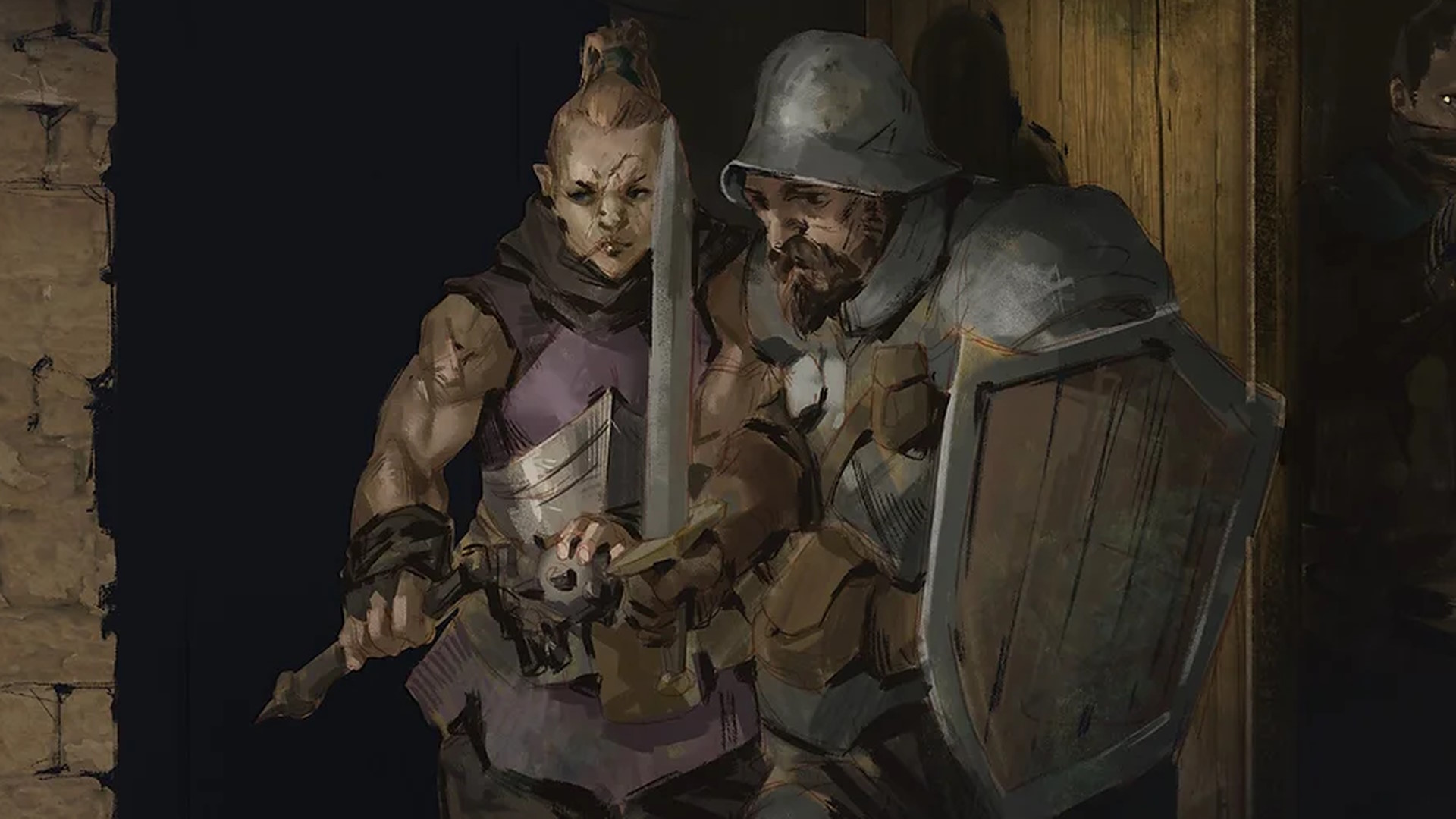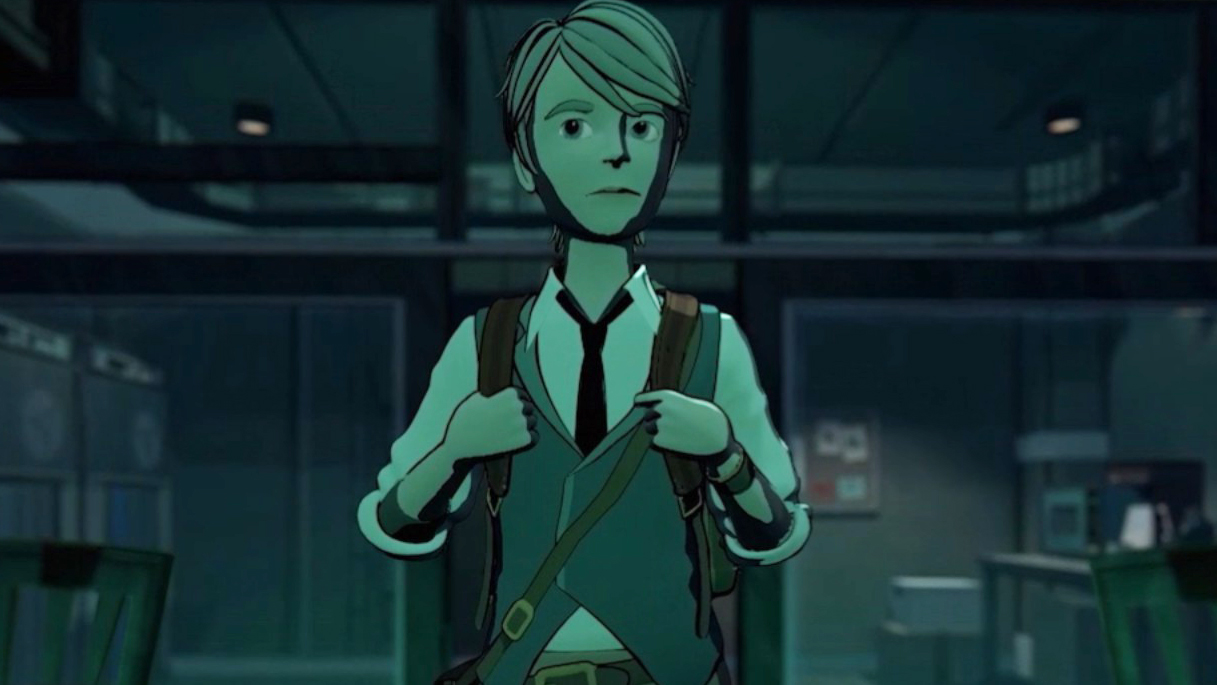When it comes to cyberpunk, I’m a simpleton: I’m always chasing the initial radioactive wave of cool that emanated from the pages of William Gibson’s Neuromancer and its prequel short story Johnny Mnemonic. When I saw the monowire cyberware in Cyberpunk 2077, I knew it was the weapon for me, and I was even more excited when Cyberpunk director Gabe Amatangelo recommended a particular monowire build to me, capitalizing on all the changes to Cyberpunk’s skill system in 2.0 and Phantom Liberty, in an interview this week.
Cyberpunk’s monowire is one of three main cyberware augments, the other two being the hard-hitting gorilla arms and the stabby mantis blades. The monowire is less of a pure melee weapon, though it can still be used in a flurry of strikes to flay enemies—its big strength is how it ties into Cyberpunk 2077’s hacking system. More importantly for me, though, it calls back to the villain of Johnny Mnemonic: a Yakuza assassin who wields a “monomolecular filament” embedded in a hidden socket in his thumb.
Forgive this tangent from Cyberpunk 2077 for just a moment, but if you’ve never read Johnny Mnemonic, its climactic action scene is the kind of evocative moment whole writing and design careers are spent trying to capture. In it, “razorgirl” merc Molly Millions, who has blades beneath her fingers, faces off against the assassin on a floor of interlaced steel cables in Lo Tek turf, suspended high above the lower strata of the city. When Molly and the assassin dance across the floor, every vibration is fed through an amplifier and turned into battle music: “The sound it made was like a world ending, like the wires that hold heaven snapping and coiling across the sky.”
Okay, one more bit from the fight before I get on with it: “He pulled the tip from his thumb with the grace of a man at ease with social gesture and flung it at her. Under the floods, the filament was a refracting thread of rainbow. She threw herself flat and rolled, jackknifing up as the molecule whipped past, steel claws snapping into the light in what must have been an automatic rictus of defense… He retracted the filament to a whirling meter-wide circle of ghostly polychrome and spun it in front of him, thumbless hand held level with his sternum. A shield.”
It’s a quick fight—just five paragraphs from beginning to end—but my god, does it slap.
(Image credit: CD Projekt Red)
How to start Phantom Liberty: Enter Dogtown
Cyberpunk 2077 Restricted Data Terminals: Get Relic Points
Cyberpunk 2077 airdrops: Loot unique rewards
Cyberpunk 2077 Iconic weapons: The best guns in Dogtown
Cyberpunk 2077 1R-ONC-LAD photo locations: Help the robot
Cyberpunk 2077’s monowire doesn’t have quite the whip-like reach or flexibility of control that Gibson imagined, but an ability added in Phantom Liberty to have it apply hacks directly makes it a far more versatile weapon than it was before, when it made the most sense to use stealthily. When I asked Amatangelo what he’d recommend players try, it was the first example that came to his mind:
“There’s so many, but I’d say the netrunner, spreading hacks with the monowire from the relic tree. That one’s so much fun, especially if you are able to work in the combos and the rhythm for refunding your memory and your cooldowns. When you do it in concert with the monowire, you get the bonuses from the spreads.
“Basically, the bonuses you get from combos happening, you set a debuff hack on one person, you spread it to a few, and then you do a follow-up hack on all of them—you get the bonuses and memory refunds from all of them. You can really get into this rhythm of sustaining your hacks at a cool pace. You could do it with a stealth hacking build, which is fun in its own right of course, but this is more of a bob-and-weave kind of suppress everyone [build].
“It’s like a warlock, if you will—a warlock netrunner.”
We called out the key perks for this build in our monowire guide, but essentially you’ll want to max out the left branch of the Intelligence tree while making sure to take Jailbreak and Data Tunneling from Phantom Liberty’s Relic tree, as shown in the pics below.
(Image credit: CD Projekt Red)
(Image credit: CD Projekt Red)










